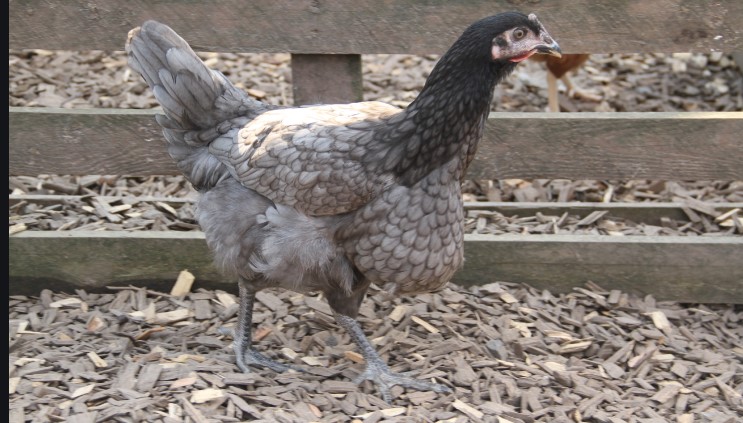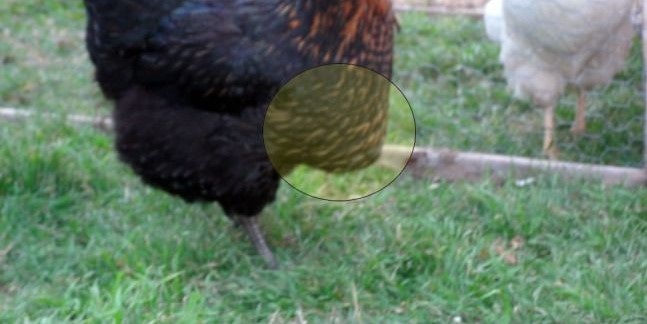
How great would it be if you could store unprocessed food somewhere in your digestive tract and eat it later when you have the time? That would come in pretty handy for those busy mornings you have to rush out of the house with no time to grab a breakfast sandwich at Starbucks.
Chickens, however, can (store their food for later, not stop for a breakfast sandwich). That’s what the crop is for. It’s a storage pouch located within a chicken’s digestive system where food waits before it goes into the gizzard to begin the digestion process.
If you’re new to chicken farming, you’ve likely come across the term “Sour Crop.” Hopefully, you’ll never have to experience this with your chicken.
Here’s everything you need to know about what it is and how to cure Sour Crop in chickens.
What Is the Crop in Chicken?
A chicken’s digestive system begins at the mouth. The food then travels down the esophagus to its first stop – the crop. This is where undigested food is stored before it travels down again through the proventriculus and into the gizzard.
The gizzard contains grit, which, when combined with the muscular action of the organ, grinds down the food into a smooth paste. It then travels further down the gastrointestinal system for further digestion and nutrient absorption. Anything leftover is excreted as chicken poop.
The crop can hold up to 1.5oz (45ml) of food. It’s the large lump of mass you see protruding from the right side of a chicken’s breastbone after they’ve fed or before they roost at night.
The crop is full of bacteria that help break down the food as it waits to travel to the gizzard.
Sour Crop
Sour Crop in chickens is essentially a yeast infection in this pouch caused by Candida albicans – the same kind of fungus that causes “thrush” in infants and babies.
When food gets stuck in the crop overnight, the bacterial flora becomes imbalanced. As a result, the bad bacteria bloom, causing a characteristic sour, putrid smell emanating from the chicken’s mouth.
A normal healthy crop has a pH of around 5.5. When this acidity level is thrown off, the bad bacteria multiply. This further upsets the delicate balance, which then leads to a proliferation of Candida.
This fungus is necessary for the healthy functioning of the crop. In large numbers, however, candidiasis in chickens soon develops, which has the complete opposite effect on the crop’s ability to do its job properly.
Causes of Sour Crop in Chickens
Aside from food getting stuck in the crop, several other factors can contribute to the development of the condition.
- Antibiotics: These kill the good flora causing the bad bacteria to proliferate
- Foods high in yeast and sugar: These are also likely to upset the delicate balance of flora and cause an overgrowth of Candida
- Impacted crop: This is a more serious condition that creates a blockage, which prevents food from passing through
- ● Injury or malfunction of the crop: This causes it to empty slowly, causing a “traffic jam” to the proventriculus
- Long coarse grass: Due to their fibrous nature, grass can get stuck in the crop
- Worms: A severe worm infestation can cause blockage in the chicken’s intestines, causing the entire system to get backed up
This begs the question – Is Sour Crop contagious? The short answer is – no, it’s not.
Candidiasis in chickens is caused by a disruption of the bacteria flora in the crop. This is an entirely internal process, so it cannot be transmitted from chicken to chicken or chicken to humans.

Sour Crop Symptoms
Chickens are predatory animals, and as is the case with all animals of prey, they mask their illnesses quite well. Fortunately, there are several tell-tale signs you can look out for to determine whether or not your chicken has Sour Crop.
The first thing you need to do is remove all the water and feed from the coop overnight and check their crop in the morning. It should be flat and empty by that point. If it feels squishy and looks visibly present, it’s a sign that the crop isn’t emptying as it should.
Next, pick up the chicken and bring their beak right up to your nose. If there’s an unmistakable sour smell coming from their mouth, that’s a positive marker for Sour Crop. If it’s severe, you might even see some white plaque in their mouth and liquid discharge coming from their beak.
You’ll likely hear a gurgling sound coming from their stomach as well. If your chicken has had Sour Crop for a while, other sick bird symptoms that might be present include:
- Diarrhea
- Loss of appetite
- Reduced egg production
- Change in the quality of eggshells produced
- Weakness and lethargy
- Weight loss
How Do You Treat Sour Crop in Chickens?
There are several Sour Crop treatment options available, some more effective than others. Regardless of the method you choose, they all have one thing in common – isolation.
You’re going to have your hands full with the sick chicken. The last thing you want is to keep chasing them around the barn or backyard every time you need to administer medication or home remedies.
You’ll also want to get someone to help you do it since chickens aren’t exactly known for their cooperation. That being said, here’s how to treat Sour Crop.
- Massage the crop a few times a day: Gently kneading the area helps to break up the food stuck there and move it along the digestive tract
- Empty the crop contents: Hold the chicken upside down while massaging the crop to induce vomiting
- Epsom salt and water solution for two to three days: This is a popular Sour Crop home treatment remedy that helps detoxify the chicken’s crop
- Molasses and water solution for up to eight hours: Works in the same way as Epsom salt
- Copper sulfate and water solution for five days: This eradicates the thrush while detoxifying the crop
- Tomato juice: This helps to restore the pH balance in the crop and aid in digestion
Prevention Is Better Than Cure
Sour Crop is an uncomfortable and unpleasant experience for both you and your chicken. Catching it early on is crucial to the successful treatment of the condition.
Add a probiotic powder to your chickens’ feeds and add apple cider vinegar to their drinking water weekly to promote a healthy balance of bacterial flora in the crop.
For more information on bird health, use our online Vet Chat to talk to any of our qualified avian veterinarians today.


